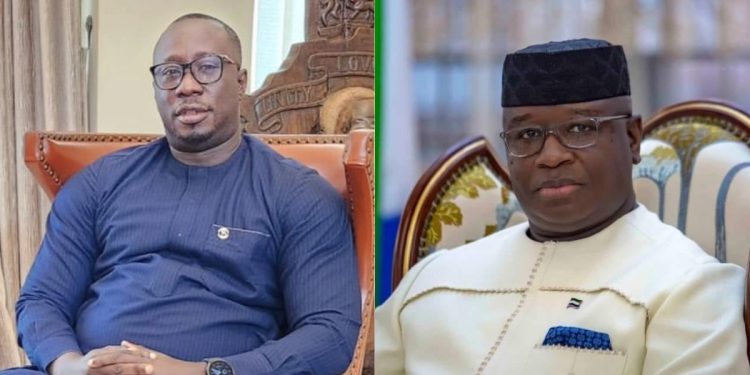By Hassan Osman Kargbo
The National Publicity Secretary of the All People’s Congress (APC), Sidi Yayah Tunis, has delivered a scathing criticism of the ruling government, accusing it of failing to take responsibility for the state of the nation after nearly seven years in power.
Speaking during an interview on the popular morning program Wake Up Sierra Leone, Tunis did not mince words as he addressed what he described as the government’s consistent pattern of blaming the previous administration for its own shortcomings.
“If you can stay in power for seven years and still blame the opposition for your failures as a government, then you are not fit for purpose,” Tunis stated firmly. “Governance is about fixing the problems of the country, not blaming your predecessor for your failures.”
Tunis’s comments come at a time when public frustration is mounting over the rising cost of living, continued electricity shortages, youth unemployment, and what critics say is a general decline in essential public services. Many citizens have echoed Tunis’s sentiments on social media, with the hashtag #FixSierraLeone gaining traction among youth activists and civil society groups.
The APC spokesperson argued that a government’s legitimacy is not only derived from winning elections but also from delivering tangible results. “The people didn’t vote for excuses; they voted for solutions. Leadership means taking charge, making tough decisions, and improving lives — not pointing fingers seven years down the line,” Tunis said.
He also challenged the ruling Sierra Leone People’s Party (SLPP) to present clear evidence of significant progress made under its tenure, asserting that development projects and reforms have either stalled or been marred by mismanagement and lack of transparency.
The interview has sparked heated political debate across Sierra Leone. While members of the APC have praised Tunis for “speaking truth to power,” supporters of the ruling party argue that the APC left behind a battered economy and deeply rooted structural problems that cannot be fixed overnight.
A senior SLPP official, speaking anonymously, dismissed Tunis’s comments as political posturing. “It is easy to criticize from the sidelines. This government inherited a mountain of debt and broken institutions. We are laying the foundation for long-term growth,” the official said.
However, independent analysts suggest that while both parties share blame for Sierra Leone’s ongoing challenges, the current administration can no longer rely on the past as a shield. “Seven years is more than enough time to demonstrate impact,” said political commentator Mohamed Jalloh. “If things are not improving, the public has a right to ask hard questions.”
Tunis concluded his interview by calling on the people of Sierra Leone to remain vigilant and hold leaders accountable, regardless of party affiliation. “It’s time we raise our standards and demand better. Blaming the past won’t build schools, fix roads, or create jobs. Only leadership will.”
As the country approaches another election cycle, such statements are expected to shape the political narrative, with citizens increasingly demanding results over rhetoric.
Whether the current government can reverse growing disillusionment remains to be seen. But one thing is clear: the blame game is no longer enough.










